Project-Based Learning for Global Citizenship Education
5 December 2024
In today's increasingly interconnected world, it's no longer enough to just teach students facts and figures. We need to equip them with the skills and mindsets that will help them thrive in a global society. That's where Project-Based Learning (PBL) comes in, and combining it with Global Citizenship Education (GCE) can be an absolute game-changer. But how exactly does this work? Why should educators care about it, and most importantly, how can we implement it in the classroom? Well, let’s dive into all of that in this detailed guide.
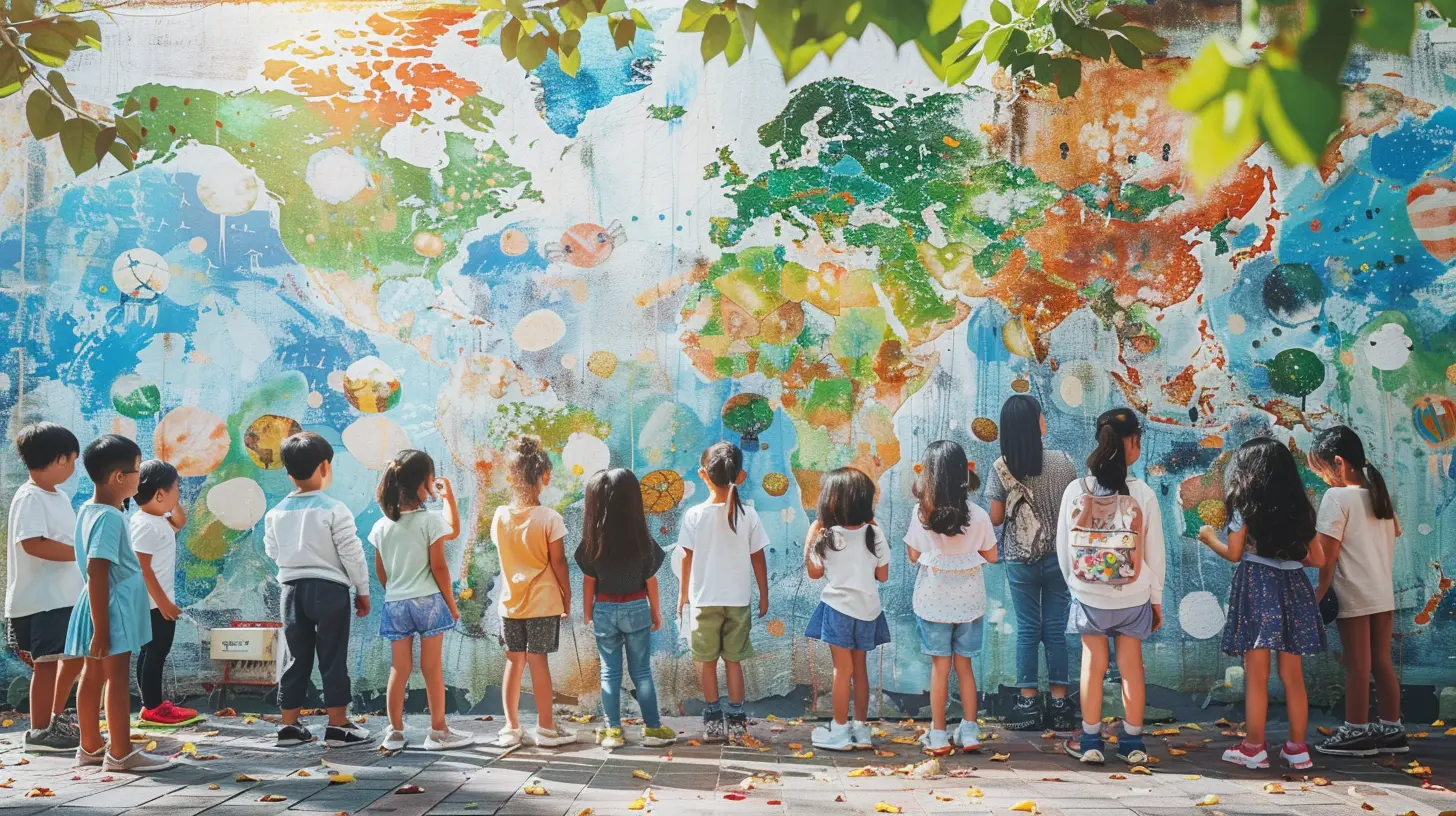
What is Project-Based Learning (PBL)?
Let’s start with the basics, shall we? Project-Based Learning is an instructional approach where students actively explore real-world problems and challenges. Instead of passively absorbing information, students engage in projects that require critical thinking, collaboration, creativity, and practical problem-solving.Rather than just memorizing facts to regurgitate on a test, students in a PBL environment are hands-on. They create, investigate, fail, try again, and ultimately learn by doing. It’s like the difference between reading about how to ride a bike and actually getting on that bike and feeling the wind in your hair.
Why PBL Matters
Why are so many educators talking about PBL? Well, it’s because this method taps into authentic, meaningful learning. It moves beyond the traditional classroom setup where students sit in rows, listen to lectures, and tick off assignments. Instead, PBL fosters deeper learning by:- Encouraging critical thinking and problem-solving.
- Promoting collaboration and communication.
- Helping students understand the real-world application of what they learn.
- Cultivating a sense of ownership over their learning process.
And when we pair PBL with Global Citizenship Education (GCE), the impact is huge. But before we get into the synergy of these two, let’s unpack what GCE is all about.
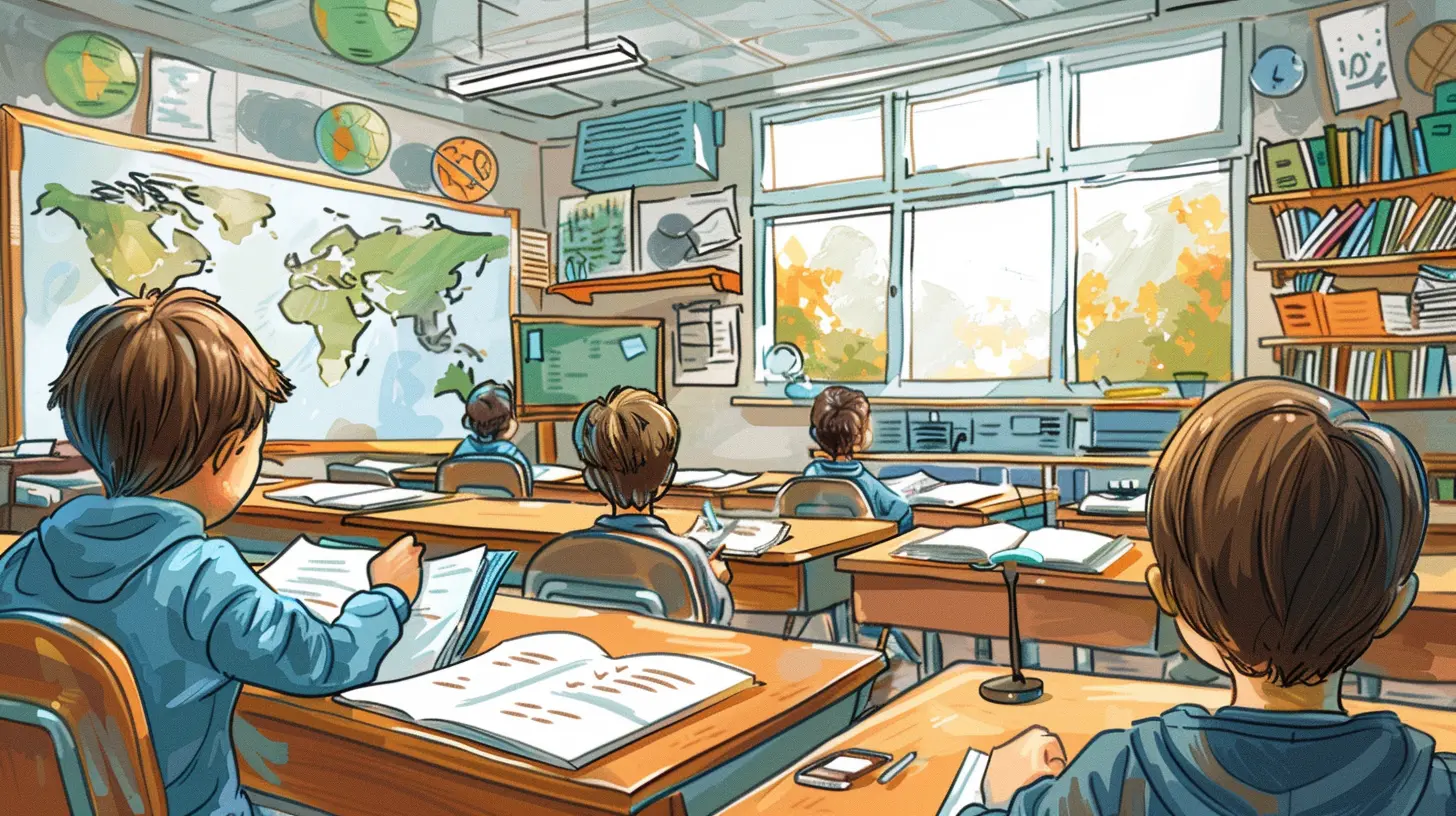
What is Global Citizenship Education (GCE)?
Alright, let’s switch gears for a minute. Global Citizenship Education aims to empower learners to become active participants in building a more just, peaceful, and sustainable world. It’s all about helping students understand global issues and their roles as citizens of an interconnected world.Think of GCE as the education world's answer to globalization. Our world is more connected than ever before, and this means that students need to be aware of global challenges like climate change, inequality, human rights, and intercultural understanding.
GCE helps students develop the following:
- Critical awareness of global issues.
- Empathy for people from different cultures and backgrounds.
- A commitment to social justice and environmental sustainability.
- The skills to engage in peaceful conflict resolution and collaborative problem-solving.
In short, GCE isn’t just about learning facts; it’s about shaping attitudes and behaviors that will contribute to a better world.

The Synergy: Project-Based Learning for Global Citizenship Education
Now here’s where things really get exciting. When we combine Project-Based Learning with Global Citizenship Education, we create an incredibly powerful approach to teaching and learning that prepares students for the complexities of the modern world.Let’s break this down.
Real-World Challenges = Real Learning
One of the key goals of GCE is to help students understand and tackle real-world problems. And guess what? That’s exactly what PBL is all about too! By designing projects around global challenges—like sustainability, poverty, or social justice—students can apply what they’re learning in the classroom to issues that matter on a global scale.For example, a PBL project might ask students to design a sustainable city that addresses climate change. Not only does this require them to learn about environmental science and urban planning, but it also encourages them to think about how their decisions impact people across the globe. It’s like solving a puzzle, but the pieces are global, and the solutions really matter.
Empowering Students to Take Action
Both PBL and GCE emphasize the importance of agency—that is, giving students the power to take charge of their own learning and make a difference in the world. In a traditional classroom, students might learn about global issues, but they rarely get the chance to actually do something about them.PBL flips the script by encouraging students to not only learn about a problem but also come up with solutions and take action. Imagine a group of students working on a project to improve water access in a developing country. They might study the science behind water purification, interview experts, and then design a prototype filter. In the process, they’re not just learning—they’re making a real-world impact.
Fostering Global Competence
Global competence isn’t just a buzzword; it’s a necessity in today’s world. This means being able to understand and appreciate cultural diversity, communicate effectively across cultures, and think critically about global issues. And guess what? PBL is one of the best ways to develop these competencies.In a PBL context, students often work in teams, which mirrors the kind of intercultural collaboration they’ll need in the real world. By tackling global issues in their projects, they’re also getting a crash course in how to think critically about complex, interconnected problems. It’s like a global workout for their brains.
Building Empathy and Compassion
If there’s one thing our world needs more of right now, it’s empathy and compassion. Global Citizenship Education emphasizes the importance of understanding and caring about the experiences of people from different cultures and backgrounds. PBL, when done right, can foster this kind of empathy.Imagine a project where students are asked to design solutions for refugees fleeing conflict. Not only are they learning about the political and economic factors that lead to displacement, but they’re also putting themselves in the shoes of people in crisis. This kind of learning goes beyond textbooks—it touches the heart.
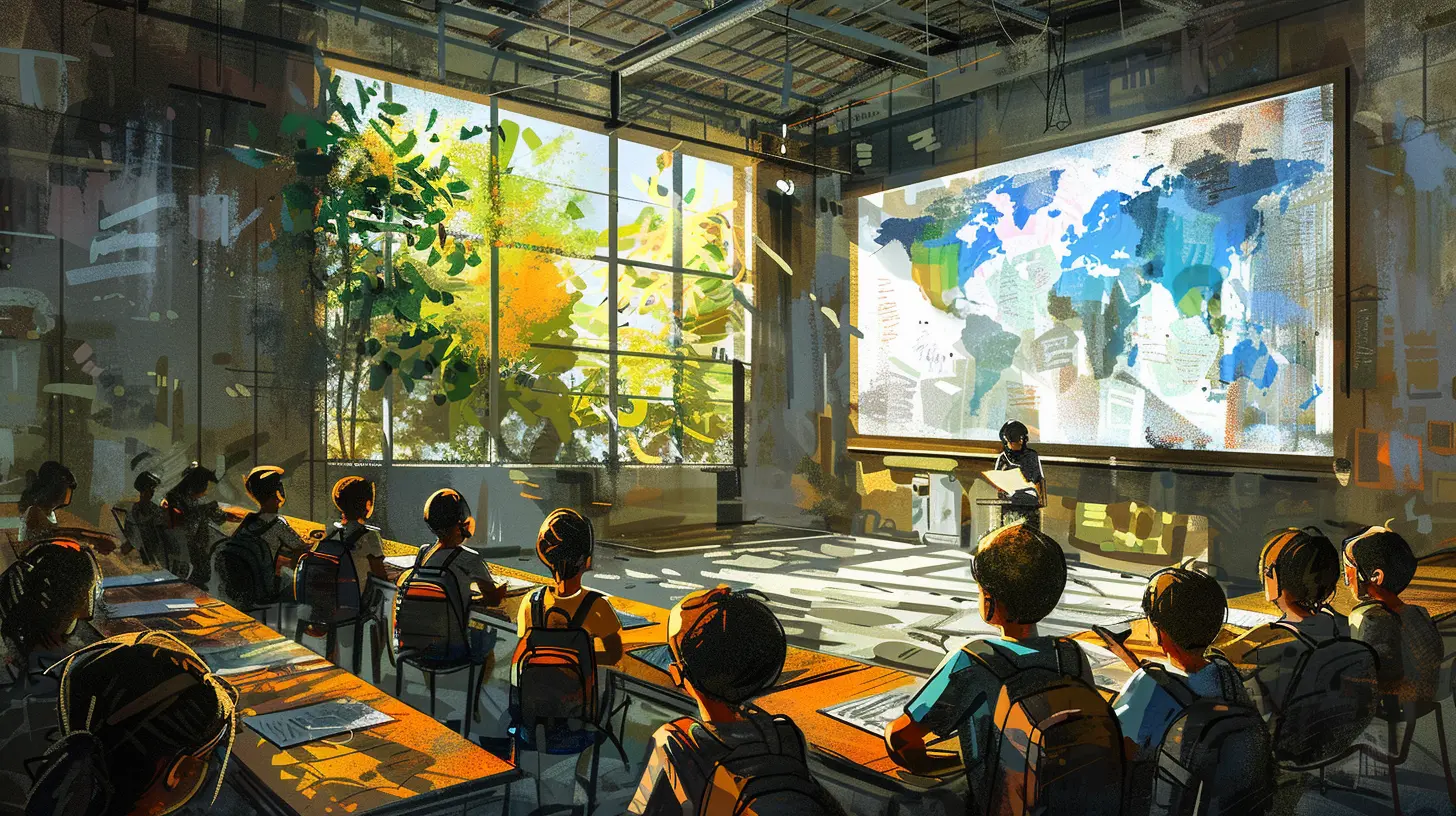
How to Implement Project-Based Learning for Global Citizenship Education
Alright, so you’re sold on the benefits of combining PBL with GCE. But how do you actually implement this in the classroom? Don’t worry, I’ve got you covered with some actionable steps.1. Start with a Global Issue
The first step is to identify a global issue that’s relevant to your students and the curriculum. This could be anything from climate change to global health to human rights. The key is to choose a topic that’s both engaging and meaningful.For example, let’s say you’re teaching a middle school science class. You could design a project around the issue of plastic pollution. Students could research the impact of plastic on marine life, investigate different ways to reduce plastic waste, and create a campaign to raise awareness in their community.
2. Create a Driving Question
Every PBL project needs a driving question—a big, open-ended question that guides the students’ inquiry. This question should be closely tied to the global issue you’ve chosen and should encourage students to think critically and creatively.For example, if you’re tackling the plastic pollution issue, your driving question might be, “How can we reduce plastic waste in our school and community to protect our oceans?”
3. Encourage Collaboration and Research
Once you’ve got a driving question, it’s time for students to start researching and brainstorming solutions. Encourage them to work in teams and collaborate with each other. You can also bring in experts, whether they’re local environmental activists or professionals working in the field.This is also a great opportunity to teach students about media literacy—how to evaluate sources, fact-check information, and think critically about what they’re reading.
4. Guide Students Toward a Solution
As students work on their projects, your role as a teacher is to guide them—not to give them the answers, but to help them ask the right questions. Encourage them to think creatively and explore different possibilities.In the case of the plastic pollution project, students might come up with solutions like starting a school-wide recycling program, creating art from recycled materials, or designing a social media campaign to raise awareness about plastic waste.
5. Share the Results with the World
One of the best things about PBL is that it gives students a chance to share their work with a real audience. Whether it’s presenting their projects to the school community, sharing their findings online, or even pitching their ideas to local government officials, students gain valuable experience in public speaking and advocacy.By sharing their projects with the world, students also get to see the impact of their work, which can be incredibly empowering.
Conclusion
Combining Project-Based Learning with Global Citizenship Education isn’t just a trend—it’s a powerful way to prepare students for the challenges and opportunities of the globalized world. By engaging in real-world projects, students not only learn about global issues but also develop the skills, empathy, and agency they need to make a difference.So, the next time you’re planning your lessons, think about how you can bring these two approaches together. Your students—and the world—will thank you for it.
all images in this post were generated using AI tools
Category:
Project Based LearningAuthor:

Eva Barker
Discussion
rate this article
19 comments
Harrison Lozano
This article effectively highlights how project-based learning fosters essential skills for global citizenship. Engaging students in real-world issues cultivates critical thinking, collaboration, and empathy, preparing them to tackle global challenges proactively.
March 25, 2025 at 11:28 AM

Eva Barker
Thank you for your thoughtful comment! I'm glad you found the article highlights the importance of project-based learning in developing critical skills for global citizenship.
Rose Wolfe
Learning by doing, globally! 🌍
February 28, 2025 at 9:05 PM

Eva Barker
Absolutely! Learning by doing fosters critical skills for global citizenship and empowers learners to make a real-world impact. 🌍
Leah Watson
Project-Based Learning for Global Citizenship? Absolutely! It’s about time education stepped out of the textbook and into the real world. Let’s empower students to tackle global issues hands-on—because watching them think critically and act compassionately is the ultimate glow-up for future leaders!
February 13, 2025 at 5:28 AM

Eva Barker
Thank you for your enthusiastic support! Empowering students through hands-on experiences is indeed crucial for developing compassionate, critical thinkers who can address global challenges. Let's continue to inspire future leaders together!
Elijah Williams
This article masterfully highlights the intersection of project-based learning and global citizenship education. By engaging students in real-world challenges, it cultivates critical thinking, collaboration, and cultural awareness. Such an approach not only enriches academic experiences but also empowers learners to become active, informed global citizens ready to effect positive change.
February 1, 2025 at 12:47 PM

Eva Barker
Thank you for your insightful comment! I'm glad you found the article's focus on project-based learning and global citizenship education compelling. Engaging students in real-world challenges is indeed crucial for fostering the skills they need to make a positive impact.
Kairoth McCartney
This article effectively highlights the importance of Project-Based Learning (PBL) in fostering global citizenship. By engaging students in real-world projects, it empowers them to understand and address global issues critically. However, more concrete examples of successful implementations would enhance its practical value for educators looking to adopt this approach.
January 30, 2025 at 4:22 AM

Eva Barker
Thank you for your insightful feedback! I appreciate your suggestion for including concrete examples of successful PBL implementations, and I will definitely consider this for future revisions to enhance its practical value for educators.
Roxie McKee
How does project-based learning enhance students' understanding of global issues and foster active citizenship? Curious minds want to know!
January 25, 2025 at 7:54 PM

Eva Barker
Project-based learning immerses students in real-world challenges, encouraging critical thinking and collaboration. By engaging in projects related to global issues, students gain a deeper understanding of these topics and develop the skills necessary for active citizenship, such as empathy, problem-solving, and community engagement.
Lena McManus
Thank you for highlighting the importance of project-based learning in fostering global citizenship. Your insights emphasize the need for practical, hands-on experiences that engage students in real-world challenges. This approach not only enhances learning but also empowers future leaders to make a positive impact globally.
January 20, 2025 at 5:42 AM

Eva Barker
Thank you for your thoughtful feedback! I'm glad you found the article highlights the crucial link between project-based learning and global citizenship. Engaging students in real-world challenges is indeed key to empowering future leaders.
Greta Willis
How can project-based learning enhance our understanding of global citizenship and foster meaningful connections worldwide?
January 16, 2025 at 12:54 PM

Eva Barker
Project-based learning fosters global citizenship by encouraging collaboration on real-world issues, enhancing cultural awareness, and building empathy through shared experiences, ultimately forging meaningful connections across diverse communities.
Madalyn Duffy
Exciting insights! Project-Based Learning truly empowers students to become engaged global citizens. Let’s inspire change together!
January 14, 2025 at 11:45 AM

Eva Barker
Thank you! I'm glad you found the insights valuable. Together, we can inspire and empower the next generation of global citizens through Project-Based Learning!
Alexia Sawyer
What innovative projects have emerged from Project-Based Learning that truly enhance global citizenship? I’m eager to learn about successful examples worldwide!
January 5, 2025 at 6:02 AM

Eva Barker
Some successful examples include student-led initiatives like "YRE (Youth Reporting Europe)," where young people produce multimedia reports on local environmental issues, and "The Global Goals for Sustainable Development" projects, where students create action plans to address global challenges like poverty and climate change. These projects empower students to engage with real-world issues and promote global citizenship.
Theodora Lewis
Project-Based Learning fosters critical thinking and collaboration, empowering students to engage with global issues and become informed, responsible global citizens. Essential for modern education!
December 31, 2024 at 12:42 PM

Eva Barker
Thank you for your insightful comment! I completely agree—Project-Based Learning indeed equips students with essential skills to tackle global challenges and promotes their development as engaged global citizens.
Merida McCord
Empowering students through real-world, collaborative projects.
December 26, 2024 at 1:47 PM

Eva Barker
Thank you! Real-world, collaborative projects are essential for fostering the skills and awareness needed for global citizenship. They empower students to engage meaningfully with diverse perspectives and solutions.
Stephen Jones
In project-based learning, we weave dreams of global unity, nurturing citizens who embrace empathy and collaboration.
December 18, 2024 at 9:28 PM

Eva Barker
Thank you! Project-based learning truly cultivates essential skills for global citizenship, fostering empathy and collaboration among students.
Archer Thompson
Empowering students through collaboration.
December 14, 2024 at 9:45 PM

Eva Barker
Thank you! Collaboration is indeed a key component of project-based learning, fostering essential skills for global citizenship.
Zane McLaury
This article brilliantly highlights the importance of project-based learning in fostering global citizenship. By engaging students in real-world issues, it encourages critical thinking, collaboration, and empathy. Emphasizing hands-on experiences empowers learners to become active, informed global citizens, ready to make a difference.
December 12, 2024 at 12:25 PM

Eva Barker
Thank you for your thoughtful insights! I’m glad the article resonated with you and highlighted the vital role of project-based learning in cultivating global citizenship. Your enthusiasm for fostering critical thinking and empathy in students is truly inspiring!
Esme Franco
Empowering students through real-world connections.
December 6, 2024 at 8:41 PM

Eva Barker
Thank you! Real-world connections are key to project-based learning, fostering engagement and global citizenship.
Anika Huffman
Embrace project-based learning to inspire creativity and critical thinking! Together, we can empower students to become engaged global citizens, shaping a brighter future.
December 6, 2024 at 3:59 AM

Eva Barker
Absolutely! Project-based learning not only fosters creativity and critical thinking but also equips students with the skills needed to navigate and contribute to an interconnected world. Let's inspire them to take action!
Isaiah McDonald
This article beautifully highlights the importance of Project-Based Learning in fostering global citizenship. Empowering students through real-world connections is vital for a compassionate future.
December 5, 2024 at 8:03 PM

Eva Barker
Thank you for your thoughtful comment! I'm glad you found the article resonant in emphasizing real-world connections for nurturing global citizenship.
Denise Blair
Great article on Project-Based Learning for Global Citizenship Education! It effectively highlights how hands-on projects can engage students and foster a deeper understanding of global issues. Encouraging collaboration and critical thinking is key to preparing students as responsible global citizens.
December 5, 2024 at 3:32 AM

Eva Barker
Thank you for your feedback! I'm glad you found the article helpful in emphasizing the importance of hands-on projects and collaboration in fostering global citizenship.
MORE POSTS

Why Soft Skills Matter Even in a World Dominated by Standardized Testing

How to Teach Critical Life Skills Through Everyday Activities

The Influence of Religion on Politics Throughout History
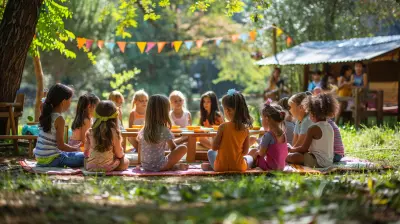
The Benefits of Outdoor Learning: Bringing the Classroom Outside
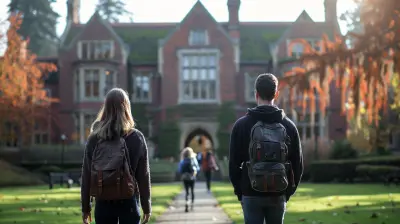
The Pros and Cons of Test-Optional College Admissions

Using PBL to Teach Critical Environmental Issues

Effective Tips for Tackling Homework Stress

Flipped Classroom: A Step-by-Step Guide for New Educators
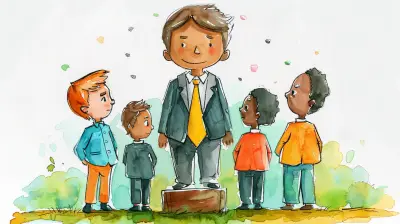
How to Balance Authority and Approachability in the Classroom

How to Incorporate Inquiry-Based Learning in STEM Lesson Plans

How to Make Critical Thinking and Creativity Go Hand in Hand

The Best Homeschooling Resources for Parents